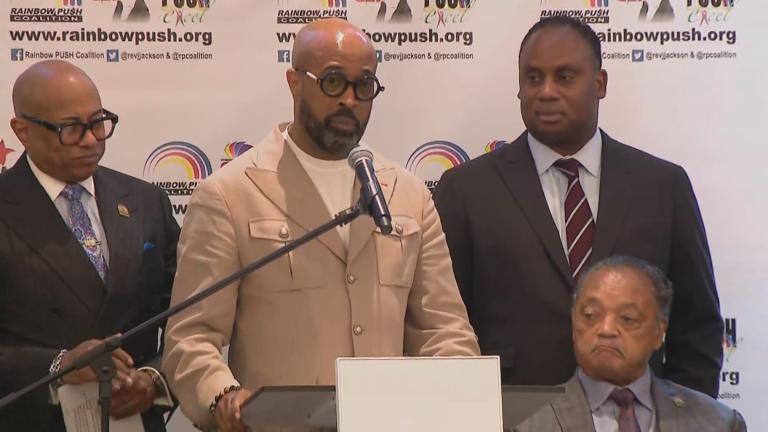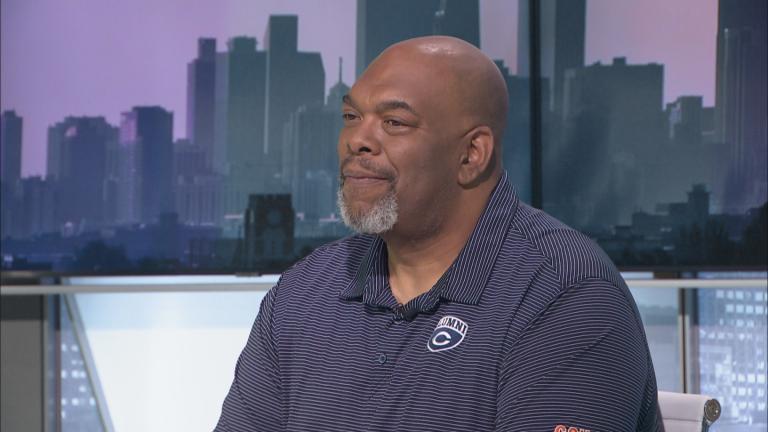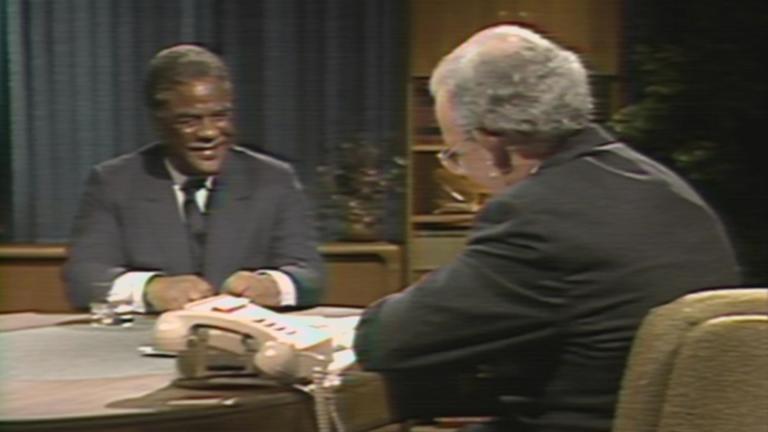This year’s Chicago elections have the potential to transform the city’s government — from the unprecedented turnover in City Council all the way up to the fifth floor of City Hall. There's also a completely new office for Chicagoans to elect: the city's first civilian police oversight board, the Community Commission for Public Safety and Accountability (CCPSA).
Voters will elect three-member councils for each of the city's 22 police districts. Those councils will be charged with holding regular meetings and bringing concerns and recommendations from community members to the city and police leadership. Those districts will then nominate a seven-person commission to oversee the entire Chicago Police Department. Proponents said among the commission’s many goals is a lofty one: building trust between residents and the police.
CCPSA deputy director Damon Smith explained how the commission defines the notion of public safety.
“Everyone having the opportunity to get home safely every day, regardless of their interactions they have with members of the public or if they have interactions with the Chicago Police Department, getting home safely and not having their right to a trial or to a court appearance placed in jeopardy by misconduct or acts of violence or terror,” Smith said. “And so, when individuals leave their homes or even in their homes, if there's an incident that occurs, they should be dealt with professionally with intentionality, with justice first and not vengeful hatred actions that can put their lives in jeopardy.”
The Empowering Communities for Public Safety (ECPS) coalition was behind the push for the commission’s creation. Attorney and ECPS member Loren Jones said part of the rationale behind the design of the district-level councils is that the idea of what public safety means can vary from community to community.
“Part of what we wanted to establish with this ordinance is giving folks in their community the opportunity to define public safety for themselves,” Jones said. “It's a complicated question. It incorporates protection and safety from police violence and protection and safety from acts of violence in your neighborhood. And, so, I think everyone should have that opportunity to figure out what that is for themselves, and the district councils give folks an opportunity to do that.”
Once the councils are elected, Smith said newly elected members will undergo a training period to get things up and running.
“The CCPSA … will be holding trainings for the district council members to walk them through the processes for their job, to walk them through what it means to be a member of the district councils,” Smith said. “How do you hold meetings? How do you take these recommendations from the community to build that trust with their local police district leadership? What we're doing now is building that trust, building those relationships from the district level up through the Chicago Police Department instead of down from the superintendent to the mayor's office for citizens to just do what they're told. We're going to have the citizens and the residents of these districts tell the police how they want to be policed, but there's a way they have to go about doing that, and that's why we're putting them through their training to do so.”
Community engagement is critical to the success of the new board, Jones said, so the ECPS coalition has been getting the word out about its goals.
“We've been working really diligently to get as many people as possible engaged and happy to have this platform to encourage people to go out and vote for these positions,” Jones said. “And in the future, we hope that everyone understands what CCPSA is and the power of it. Because everyone has an opinion about public safety, right? And, so, having the separate mechanism in Chicago that's dedicated specifically to that — we're hoping that will keep people engaged in the long run.”
Ultimately, Smith said, it’s citizens who will determine whether the effort is successful in improving public safety.
“We're looking at one, public engagement,” Smith said. “Are the communities … coming to these meetings, participating in what policing looks like in building those structures? Are they creating opportunities for restorative justice, peace circles, community policing? … Maybe some alternative strategies to building those relationships and build and resolving these issues among community residents, so the police don't have to be called for every single incident. Maybe increasing mental health awareness and having those issues addressed, as well. Instead of having the police involved, maybe [have] the community involved. So that's how we're judging if this works or not. We want to help reduce what the police have to do in our communities, so that when they're called, it is for a true emergency where everyone is treated fairly and equitably.”








